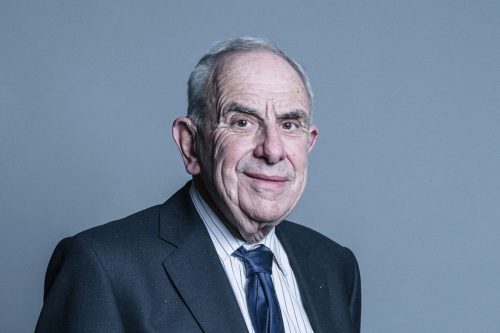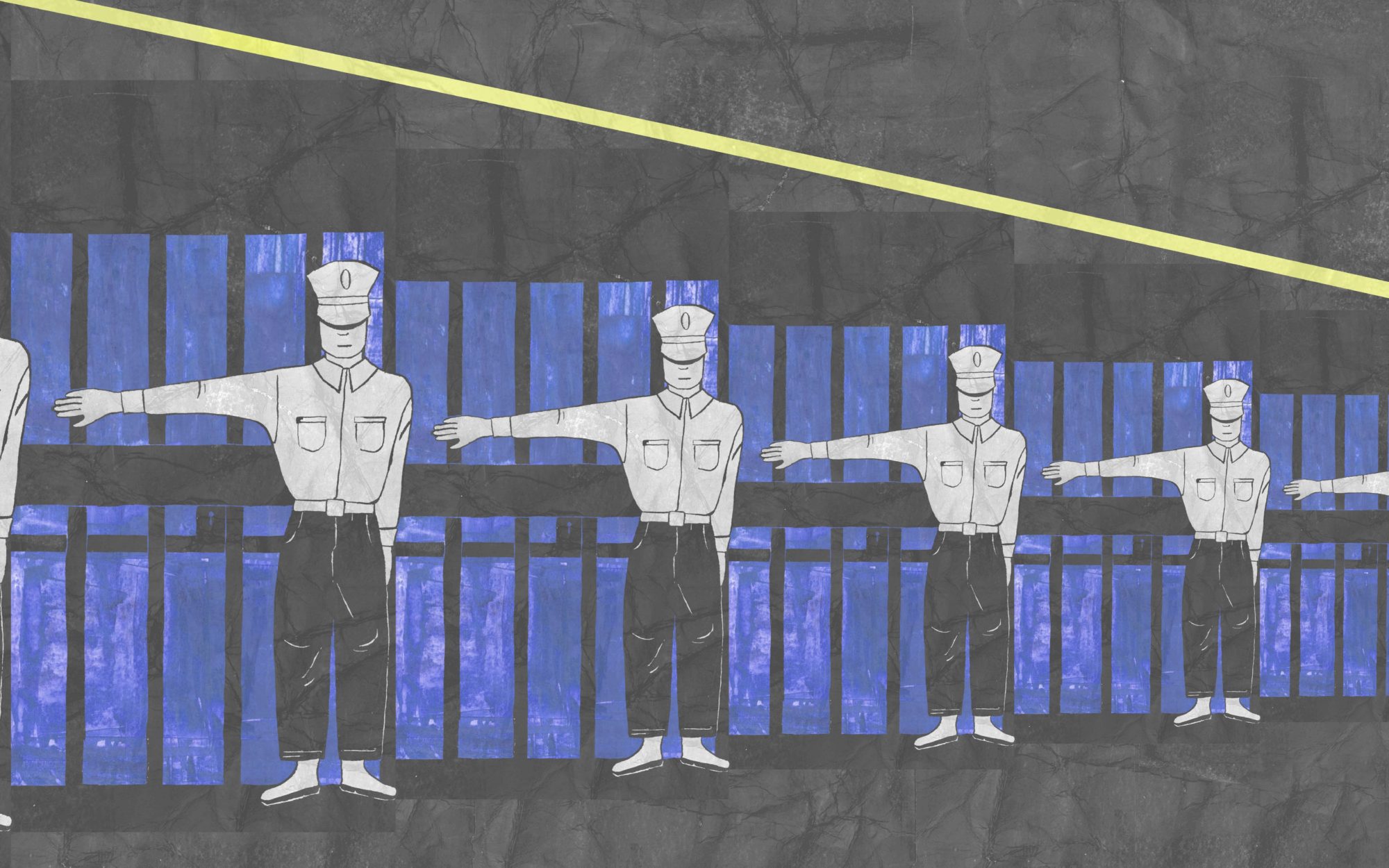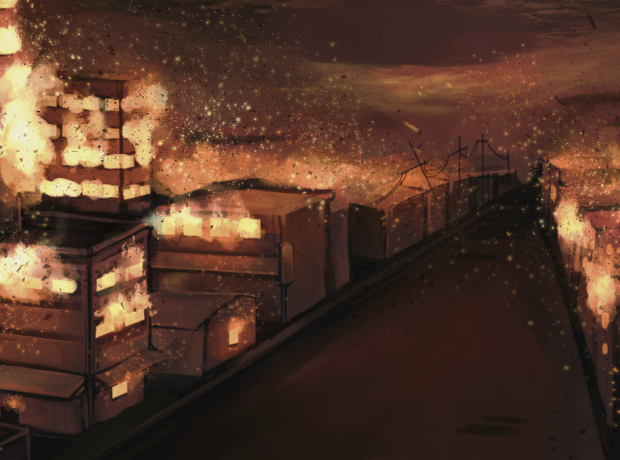Comparing the perceived threat of terrorism with the protection of human rights and civil liberties, our 16-year-old writer presents the story of 17 Muslim men detained for years without charge or trial. She finds the Belmarsh case is as relevant as ever.
Abigail Pope is the winner of the University of Bristol’s first annual Writing Wrongs Schools’ Competition, inspired by the Centre for Human Rights in Practice. This is her winning article which she reworked with editorial support from Lacuna Magazine.
Imagine that one night, while you are sleeping soundly at home, your house is broken into. Your first thought in the commotion is that burglars have come to seize your possessions, but instead it is police officers who barge into your bedroom.
You are transported to a high security facility, where you are detained for reasons of “national security”. You are suspected of being involved in terrorism, although precisely what you’re believed to have done is unknown.
You are kept in your cell for hours on end, unable to protest against your conditions or defend yourself, with no access to legal representation.

Aerial view of HM Prison Belmarsh and Woolwich by Anders Sandberg
You are kept here for days, months, years – with no end in sight.
This disturbing scenario seems incongruous with modern Britain, disregarding America’s “war on terror” in favour of what Lord Ken McDonald QC termed “an efficient and human rights compatible process” featuring “a culture of legislative restraint”.
Yet the reality is that Britain’s secret counter-terrorism measures parallel those employed in the US and Guantanamo Bay.
The scenario described above echoes events in 2001, when 17 Muslim men were arrested on suspicion of involvement in international terrorism and taken to Belmarsh Prison in London.
They were detained for more than three years without being tried or convicted of a criminal offence, and were subjected to “inhumane and degrading treatment”.
Confined to their cells for up to 22 hours a day, the men suffered inadequate healthcare, had no access to legal advice and had no ability to practice their religion. It was only by taking the government to court that they won their freedom. The treatment was brutal, yet was considered necessary by the government at the time.
In a direct response to the September 11 attacks on the World Trade Centre, Parliament passed the Anti-Terrorism, Crime and Security Act 2001 in an attempt to protect Britain.
Read more: “I was investigated at school by the government’s anti-radicalisation programme.”
Part 4 of this Act was used to justify the imprisonment of the Belmarsh detainees; it gave the Home Secretary the right to indefinitely detain foreign nationals who were suspected of involvement in terrorism but were unable to be deported due to the threat of torture in their home countries.
There were fears that, due to the “special relationship” between the US and the UK, terrorists would choose Britain as their next target. The Al-Qaeda linked attacks on the London Underground in 2005 further fed these fears.
The treatment the Belmarsh detainees were subjected to was restricted to foreign nationals only; British citizens, regardless of terrorist activity, were excused.
The then Home Secretary David Blunkett rationalised: “While it would be possible to seek other powers to detain British citizens who may be involved in international terrorism, it would be a very grave step. The Government believes that such draconian powers would be difficult to justify…”
Yet these same draconian powers were considered justified when targeted towards foreign suspects.

Former home secretary David Blunkett, by Policy Exchange
In an interview with BBC Radio 4 in 2004, suspect ‘M’ spoke about his experiences and treatment. He described being treated like an “animal inside the cage”, unable to defend himself or challenge his treatment.
“I believe I’m [an] innocent man and I did nothing against this country… They did not question me once. If I am a suspect of terrorism, if they are thinking maybe I will do something against this government or this country, why didn’t they come to me to ask me any questions?” The physical deterioration and mental health of the prisoners was also a concern. M stated that many prisoners had “become mad – exactly mad. They are not controlled themselves – they are not thinking in [a] good way… exactly, they are crazy.”
Despite denials that the prisoners were mistreated, the government was taken to court in 2004 and lost its case. The detainees argued that their human rights had been breached under Article 5 of the European Convention on Human Rights (the right to liberty) and that it was not justifiable under Article 15 (which allows states to derogate from certain rights in the Convention during a “war or other public emergency threatening the life of the nation”).
Read more: Carlington Spencer: Another death in UK immigration detention
Eight of the nine judges took a broad view of what constituted a “public emergency”, remarking that the special relationship between the US and UK justified a risk to the UK as well.
Yet amongst those, seven felt that the reaction was disproportionate. Baroness Hale stated that:
“The conclusion has to be that it is not necessary to lock up the nationals. Other ways must have been found to contain the threat which they present. And if it is not necessary to lock up the nationals it cannot be necessary to lock up the foreigners. It is not strictly required by the exigencies of the situation.”

Baroness Hale, image by Salford University
Although the court could not constitutionally force the government to release the detainees, the declaration of incompatibility with the European Convention on Human Rights in conjunction with public outcry and the prospect of re-election induced the government to act.
By March 2005, the detainees were released and the legislation to indefinitely detain foreign nationals was repealed. The mental health of the detainees, already fragile from their internment, disintegrated further; many were admitted to mental health institutions, and have since vanished from public discussion.
Articles about the experience of these men rarely venture past the result of the case in 2005. In the most recent, an article from 2017, the case is used in reference to the European Convention on Human Rights, rather than focusing on the lives of the detainees.
While academics may suggest that the courts now have a greater willingness to uphold civil liberties and hold the government to account for breaches of the law, it is a small consolation in a world where Belmarsh seems likely to feature only in law textbooks as an example of constitutional law in action.
For the majority of today’s secondary school students, a post-9/11 world is all we know. We have been brought up in a culture of fear perpetuated by continued attacks on the UK and its European allies: Madrid, London, Paris, Brussels, Nice, Berlin, Manchester, and Barcelona. The list is extensive. But it is risky to exaggerate the threat of terrorism.
In the face of devastating attacks, even the most liberal among us can retreat from the principles we have previously held most dear.
In her critique of approaches to terrorism and justice, Helena Kennedy QC recounts how, following the September 11 attacks, her passionately liberal American friend declared: “To hell with civil liberties.”

Official portrait of Lord Hoffman
This attitude is not an anomaly. But are we trading our fundamental freedoms for draconian security measures which are disproportionate to the actual risk terrorism poses? Are we marginalising entire groups of people based on the limited actions of a select few? Are we striking the right balance between protecting our lives and our freedoms?
Belmarsh is so much more than an inconsequential footnote. It acts as a microcosm of Britain’s flawed anti-terrorism strategy, and as a reminder that in times of threat, there are grave dangers in retreating from principle.
In the words of Lord Hoffman, delivering the law lords’ verdict in the Belmarsh case: “The real threat to the life of the nation, in the sense of people living in accordance with its traditional laws and political values, comes not from terrorism but from laws such as these. That is the true measure of what terrorism may achieve.”
Main illustration by Beatrice Florence Taylor
For stories like this direct to your inbox each month subscribe here.



